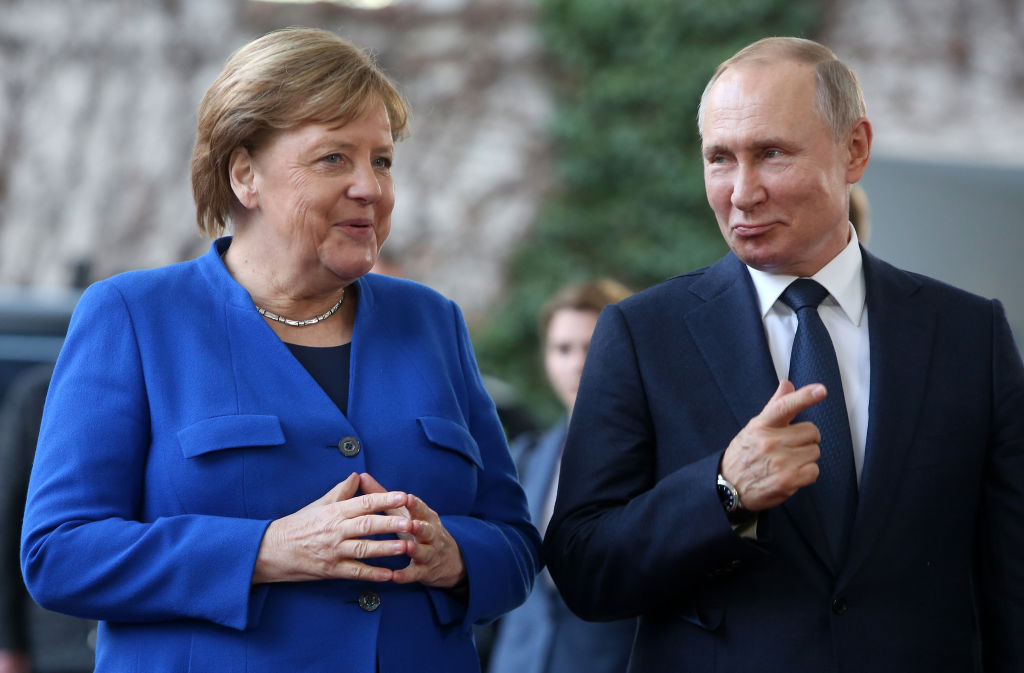Churchill, FDR and Stalin could cooperate against Hitler, so perhaps we shouldn’t be too surprised that even amidst talk of a new Cold War, sanctions and more than a little sanctimony, people in the West are willing to make deals with Moscow in the name of fighting the new global threat, Covid-19.
Russia’s Sputnik V vaccine may have been rushed through its certification at home and been the subject of some overblown nationalist hype (not that the Oxford-AstraZeneca vaccine has been entirely free of the latter), but so far it appears to be a serious and effective jab, with a potential 91.4 per cent efficacy. Although based on a different source of modified adenovirus, a common cold virus, it is similar in many ways to the Oxford-AstraZeneca vaccine, not least in that it is relatively cheap and can be stored in a regular fridge.
There is still widespread suspicion about the vaccine in Russia, where over a million have received the first of their two jabs, but several other countries have leapt at the chance to use or license Sputnik V, including Algeria, Brazil, China, and India.
Not in the West, though. Sputnik V still is not certified by the European Medicines Agency (EMA) or the World Health Organisation, and while Hungary (ever the EU bad boy) toyed with using the vaccine, it decided against because of Russia’s limited production capacity. Only traditional Russian allies Belarus and Serbia have adopted it.
Now, though, it has emerged that Angela Merkel and President Putin have apparently discussed cooperating on the production of Sputnik V. Admittedly, this was at the Russians’ initiative and would be dependent on EMA approval, which in itself would take months given the agency’s usual speed of operation.
This is not a sign of some renewed chumminess between Merkel and Putin. Rather, it reflects simple pragmatism. The Russians had the research capacity to come up with the vaccine, but not the production capacity to meet the demand.
On the other hand, the Germans are worried they simply do not have enough vaccines and are showing growing signs of impatience with the EU’s centralised procurement programme. Although claims that French political pressure was behind the failure to order enough Pfizer/BioNTech jabs are disputed, given that the alternative is simply incompetence and bad planning, there is no real upside.
Germany, once one of the least affected European countries, is now facing a growing crisis. Its daily death rate exceeded 1,000 for the first time on 30 December, and a tough new lockdown regime has been extended to the end of January. Under 400,000 Germans have been inoculated so far, 0.38 per cent of the population, compared with 0.55 per cent in Russia (and 1.81 per cent in the UK).
Angela Merkel will be leaving office this autumn. This is – she presumably hopes – her last crisis, and having initially had a ‘good pandemic,’ this is her chance to maintain that. At the very least, talking to the Russians may put pressure on the EU and the EMA to get their acts together. If not, then in due course Sputnik V may be finding its way into the arms of Germans, too.
Either way, Putin also gets what he wants: the chance to demonstrate that Russia is at the top table when it comes to science (there’s a reason why the vaccine was named after the Soviets’ world-beating satellite, after all), perhaps an inroad into the European market, and a German seal of approval to help convince his own sceptical population to have their jabs.
After all, even before the Germans started to be interested, AstraZeneca had begun joint work with Russia’s Gamaleya Institute – which developed Sputnik V – to explore whether combing their two vaccines might be an effective and long-lasting treatment.
We too easily forget how, behind all the sound and fury, the divisiveness and distrust between governments, trade deals are made, search and rescue teams deploy regardless of whose flag is on a ship, scholars collaborate, and scientific data is shared around the world. When mutual interests are involved – that magical key to any lock – the cooperation is always possible. Until the crisis of the moment is over, at least.







Comments